Observation skills Normal Science Worksheets for Ages 4-9
8 filtered results
-
From - To
Enhance your child's observation skills with our engaging Normal Science Worksheets designed for ages 4-9. These worksheets promote keen observation by encouraging young learners to explore their environment and ask questions about the world around them. With a variety of fun activities, such as identifying patterns, comparing objects, and noticing changes, children will develop critical thinking and analytical skills. Our thoughtfully designed resources make learning enjoyable, ensuring that your child can grasp essential scientific concepts while having fun. Perfect for home or classroom use, these worksheets are ideal for nurturing your child's curiosity and love for science. Explore today!


Matter: Assessment 1 Worksheet
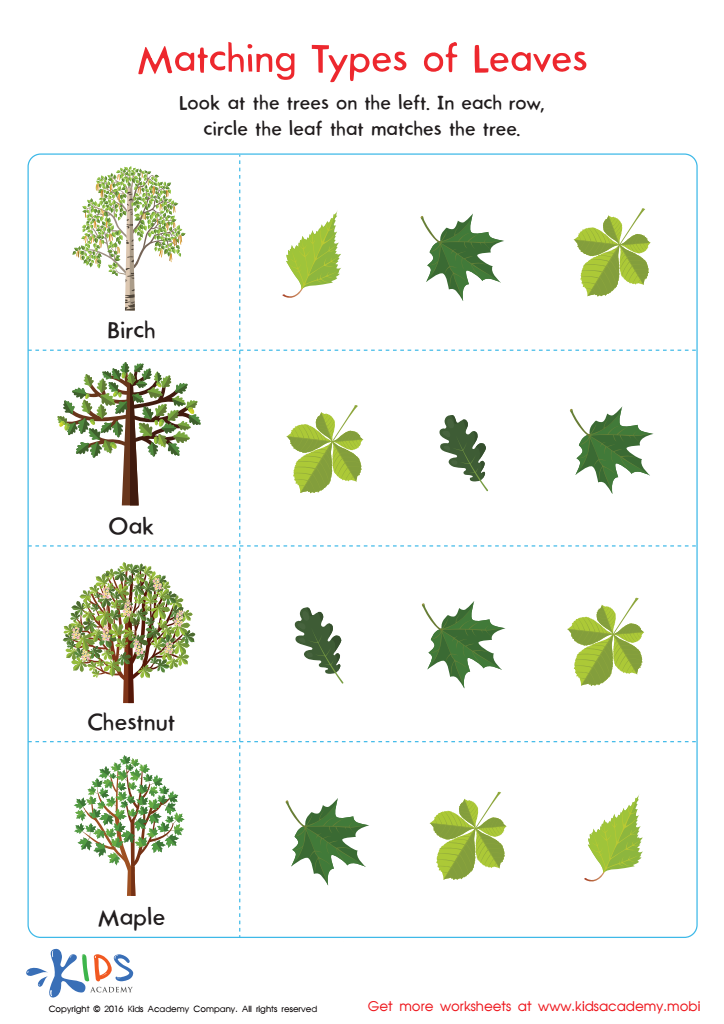

Matching Types of Leaves Printable
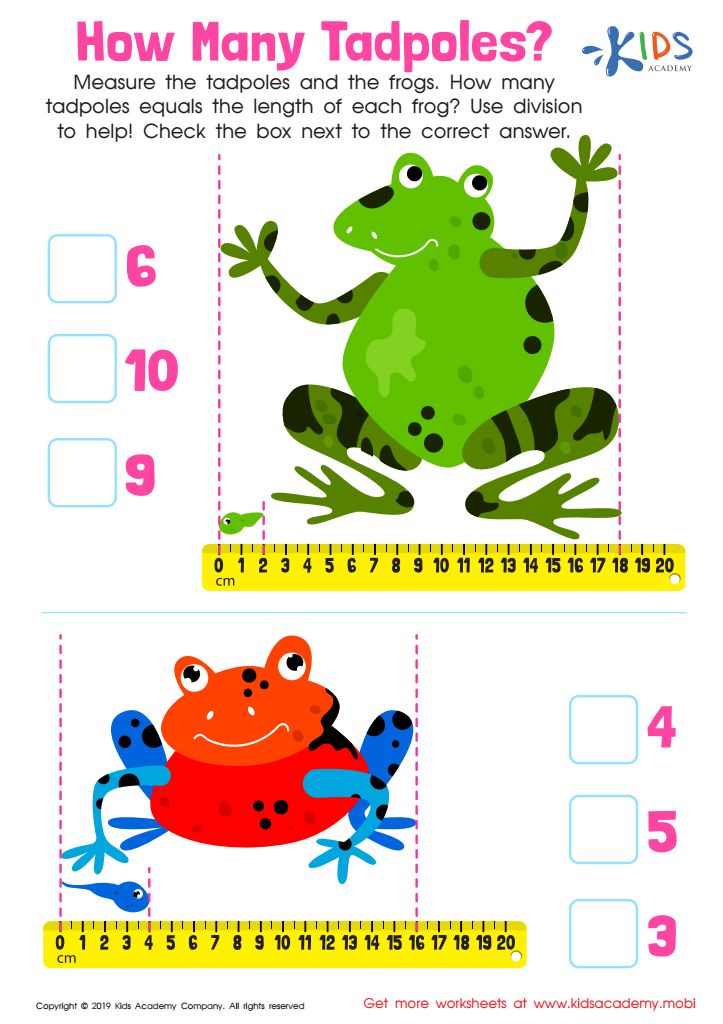

How Many Tadpoles Worksheet


The 5 Sense Scientist Worksheet
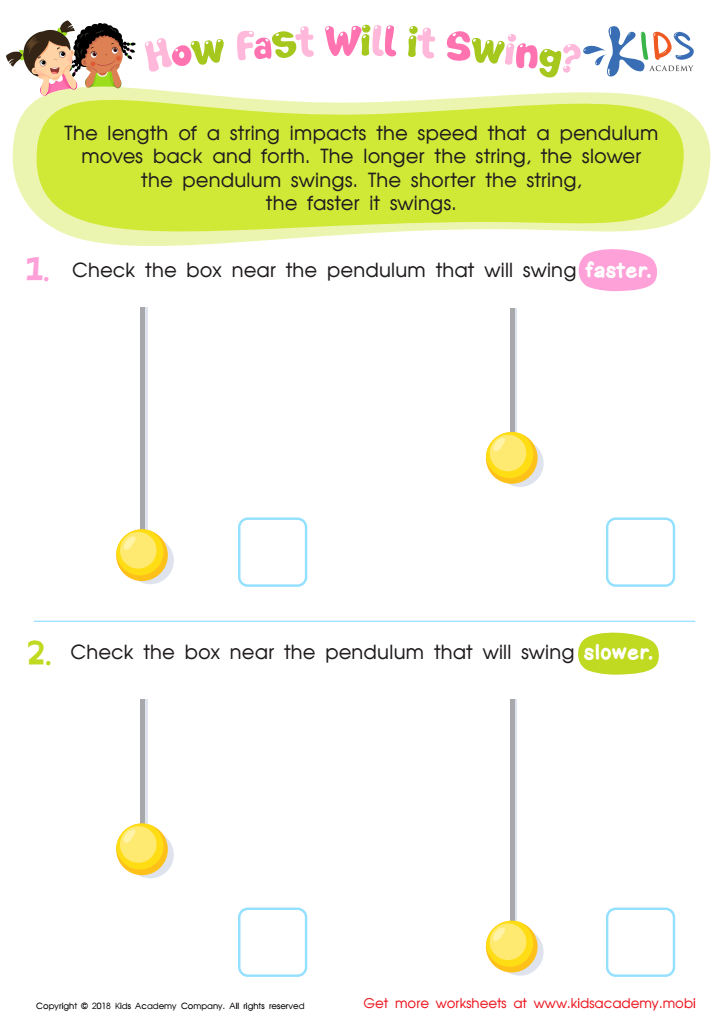

Pendulum Experiment Worksheet For 3rd Grade
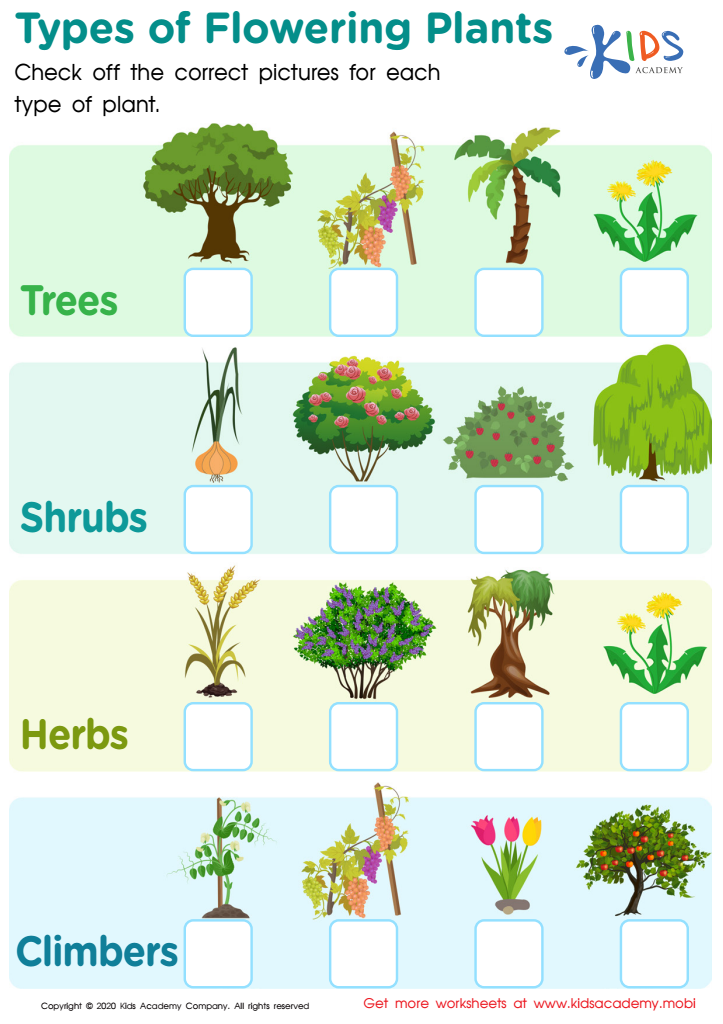

Types of Flowering Plants Worksheet
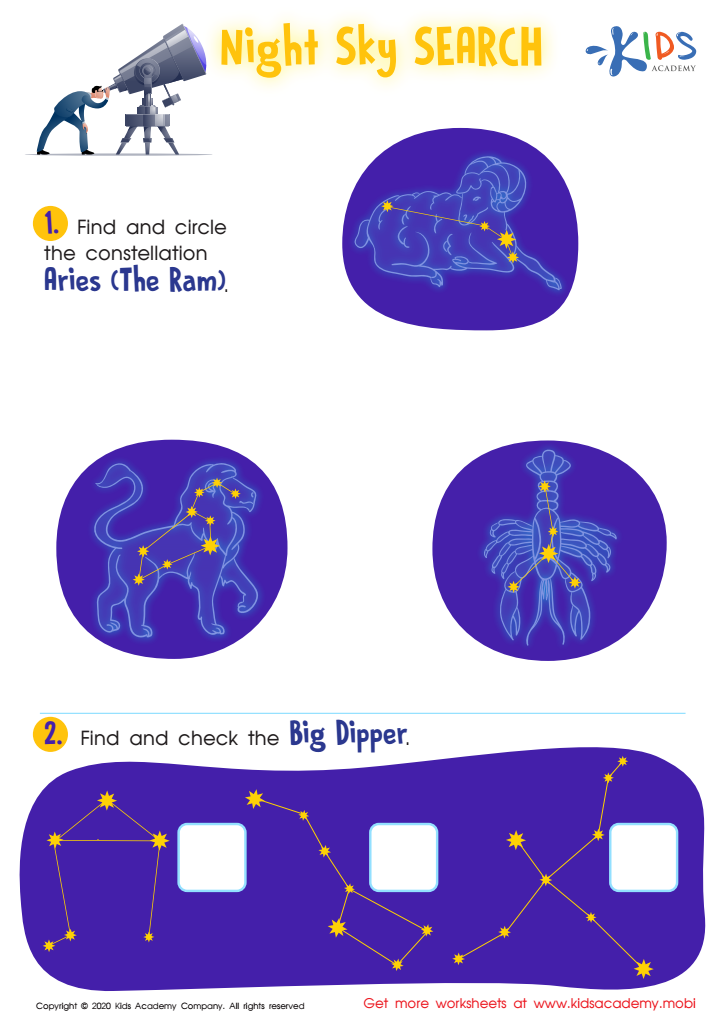

Night Sky Search Worksheet
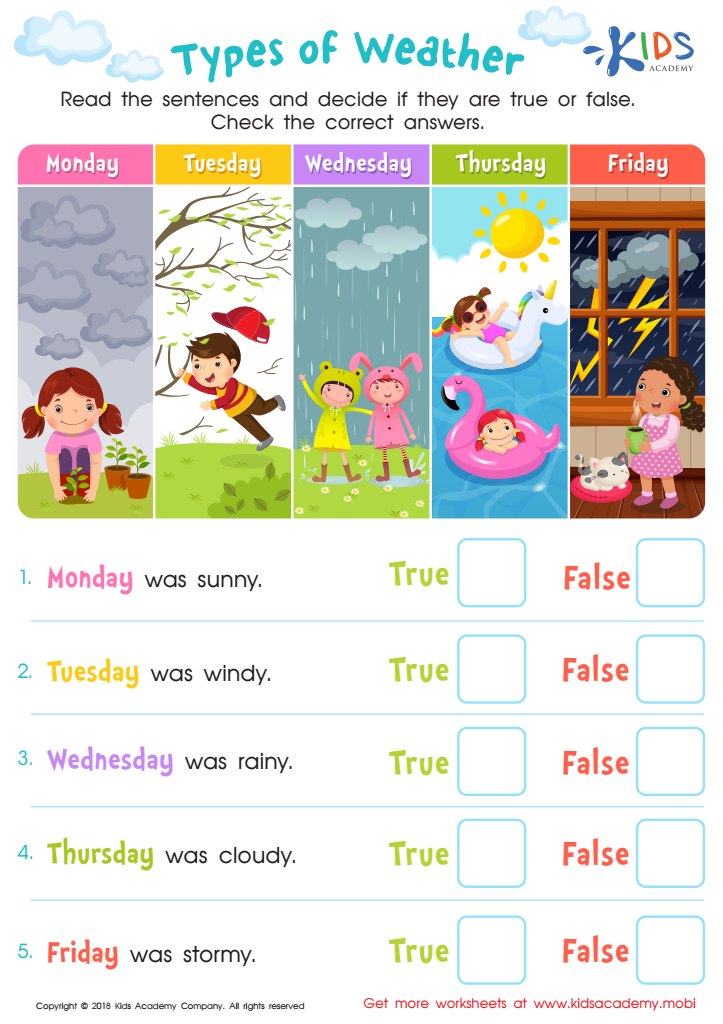

Types of Weather Worksheet
Observation skills are crucial for children aged 4-9, as they form the foundation for effective learning in science and other subjects. During these formative years, children experience rapid cognitive development, and honing their observational abilities can significantly enhance their understanding of the world around them. Parents and teachers should prioritize these skills for several reasons.
Firstly, observing carefully helps children notice details and patterns, fostering critical thinking and analytical skills essential for scientific inquiry. When children engage in observation, they learn to ask questions, make predictions, and draw conclusions—key components of the scientific method.
Secondly, observation skills support literacy development by encouraging children to describe what they see, enhancing vocabulary and language skills. This interactive learning process ignites curiosity and promotes a lifelong love of learning.
Moreover, in a world increasingly driven by technology, the ability to observe and interpret real-world phenomena is more relevant than ever. Encouraging observational skills allows children to develop a deeper connection with nature and their environment, promoting environmental stewardship.
In summary, nurturing observation skills in young children equips them for academic success, strengthens their cognitive framework, supports language development, and fosters a sustained curiosity critical for a well-rounded education.
 Assign to My Students
Assign to My Students















